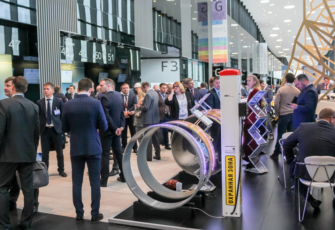
In the digital age, the success of an event does not merely hinge on the quality of its content or its organization. It also depends on how well you position it in front of your target audience. Enter the world of SEO events. By leveraging the power of search engine optimization (SEO), event organizers can expand their reach, boost registrations, and ensure higher engagement. Here is how to harness SEO for your events effectively.
Understanding the Importance of SEO for Events
Every day, millions of searches are conducted on search engines. Amidst this vast ocean of queries, your event must stand out, especially if it falls under popular categories like corporate events and live experiences. This is where SEO comes in, optimizing your event's online presence to appear at the top of relevant search results, increasing the likelihood of attracting potential attendees.
Keyword Research: The Foundation of SEO
Identifying the right keywords is pivotal. Potential attendees might use These terms or phrases in their search queries. Tools like Google's Keyword Planner or SEMrush can provide insights into popular keywords related to your event niche. Once identified, incorporate these keywords into your event website, descriptions, blog posts, and other relevant content.
Optimized Content: Driving Engagement and Shares
Content is king, and its optimization is crucial for SEO success. Write engaging articles or blog posts related to your event topic, ensuring they are rich in relevant keywords. For example, if you are hosting a streaming & virtual event production, you might write articles on the latest trends or technologies in virtual events. Quality content boosts SEO and positions you as an industry thought leader, encouraging shares and backlinks.
On-Page SEO: Tweaking the Technical Details
On-page SEO refers to all the measures taken within your website to improve its position in search rankings. This includes optimizing meta descriptions, using header tags correctly, ensuring mobile-friendliness, and improving page load speeds. These elements enhance the user experience, signaling to search engines that your site is valuable and relevant to the searcher's query.
Backlinks: Building Credibility
Backlinks from reputable sites to yours are an integral part of SEO. These are like endorsements, showing search engines that what you do is credible and your content is authoritative. Engage in guest posting on industry blogs or collaborate with partners and influencers to garner quality backlinks.
Social Media Integration
While social signals are not direct ranking factors, there is an undeniable correlation between social activity and SEO performance. Share your event content across social media platforms, encouraging shares, likes, and comments. Engaging content tends to get shared more, driving traffic to your site and boosting SEO.
Analytics and Monitoring
Lastly, SEO is not a one-time effort. Continuously monitor your website's performance using tools like Google Analytics. Track which keywords are driving traffic, assess user behavior on your site, and tweak your strategy based on these insights.
Leveraging SEO for your events can seem daunting, but its rewards for visibility, engagement, and success are immense. By understanding the principles of SEO, conducting thorough keyword research, producing quality content, and focusing on technical optimization, you can ensure your event shines brightly amidst the vast digital landscape. Remember, in the world of digital marketing and events, visibility is the first step toward success.



